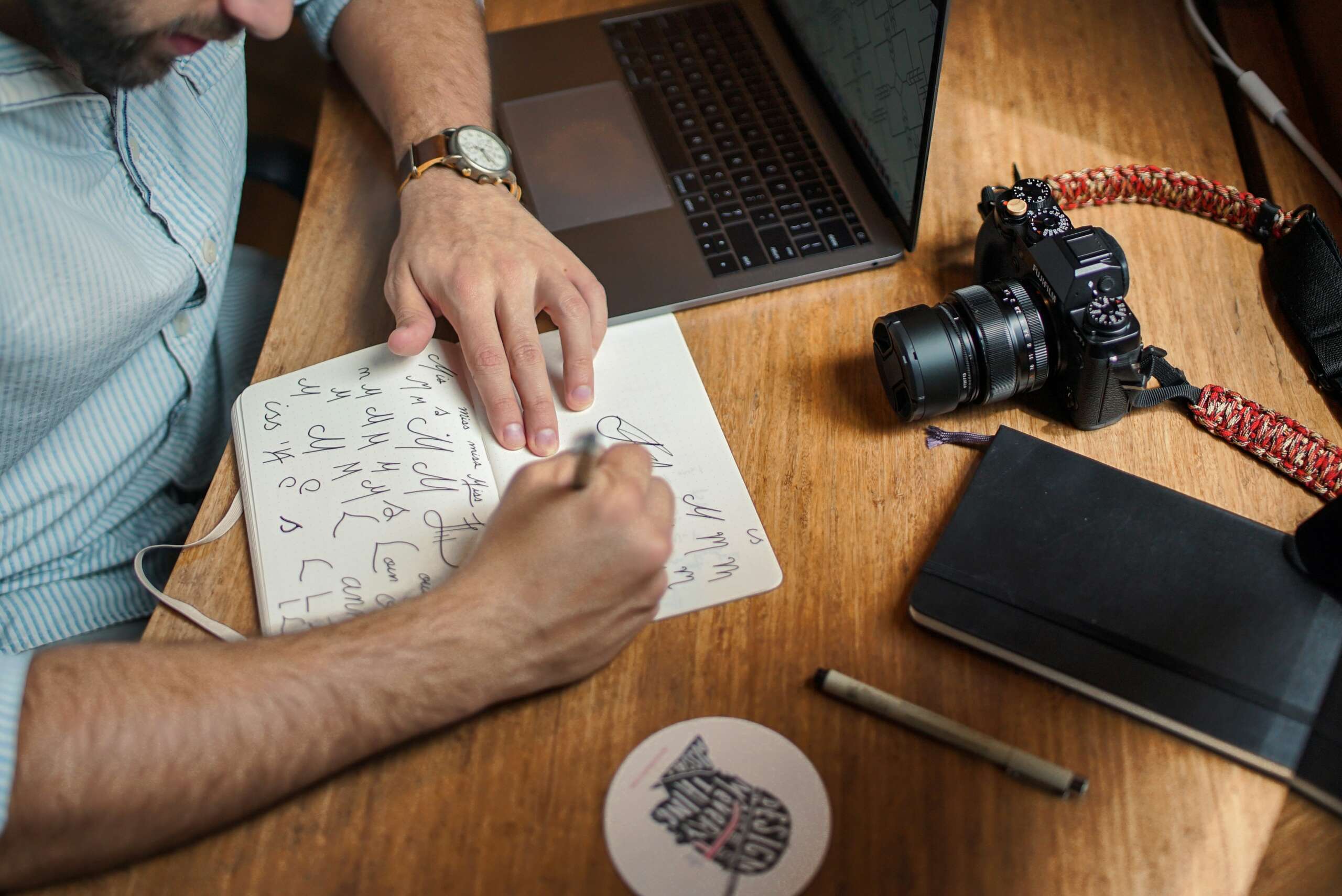Thanks to modern platforms and resources, independent artists are finding it increasingly easier to embrace entrepreneurship, establish a following, and build successful brands. This is great news for artists such as musicians, writers, performers, and visual artists who no longer have to rely solely on the prospect of a ‘big break’ from traditional agencies to achieve success. In this article, we explore strategies that empower independent artists to build a distinctive brand, drawing insights from established peers to uncover the attitudes and practices that contribute to a thriving business venture.
What’s Creative Entrepreneurship?
Creative entrepreneurship necessitates business acumen, forcing the creator to strengthen their strategic thinking skills, along with honing creativity. Dr. Howard Stevenson, a leading expert in entrepreneurship at Harvard Business School, defines entrepreneurship as “the pursuit of opportunity beyond resources controlled.” For independent artists, this translates into the pursuit of creative opportunities beyond traditional structures, allowing them to carve their niche and engage with audiences directly.
Unique Challenges
Independent artists face a set of unique challenges in their entrepreneurial journey. Limited resources, lack of established networks, and the need to wear multiple hats—from creator to marketer—are just a few hurdles. However, these challenges also present opportunities for innovation and authenticity.
Quotes from Successful Independent Artists:
- Amanda Palmer:
– “The listener can experience the art in a way that is directly meaningful to them. It’s not filtered through some major label or some executive producer. It’s a direct connection.”
- Chance the Rapper:
– “I don’t believe in free music. Music is how I make my living. If I’m giving it away for free, how do I make a living?”

Building Your Brand
Authenticity and Unique Voice:
Successful creative entrepreneurship begins with authenticity. Independent artists have the advantage of presenting their unfiltered, genuine selves to the world. Embracing this uniqueness becomes the foundation for building a brand that stands out.
Developing a Visual Identity
Visual identity plays a pivotal role in brand building. From album covers to social media aesthetics, the visual representation of an artist contributes to the overall brand experience. Visual artist and entrepreneur Kehinde Wiley notes, “The visual image is a kind of magnet for the eyes.” Independent artists can leverage platforms like Instagram, Pinterest, and even collaborations with visual artists to craft a visually compelling and cohesive brand image.
Leveraging the Digital Landscape
In the digital age, online platforms are powerful tools for independent artists to connect with their audience and build a brand. Social media, streaming services, and personal websites offer unprecedented opportunities for direct engagement. Entrepreneurial expert Gary Vaynerchuk emphasizes this shift, stating, “In the world of business, the people who are most successful are those who are doing the work they love.”
Utilizing Digital Platforms
Social media platforms provide a direct line of communication between artists and their audience. Independent artist Marie Digby reflects on this connection, saying, “My fans really connect with me because they feel like they’re on the journey with me.” Consistent and authentic interaction on platforms like Twitter, Instagram, and TikTok can foster a loyal community around an artist’s brand.
Additionally, streaming services have revolutionized the music industry, allowing music artists to reach a global audience without the need for traditional record labels. Grammy-winning artist Chance the Rapper, singer-songwriter Amanda Palmer, and Australian musician Tash Sultana are examples of artists who have chosen the independent route.

Monetizing Creativity: Balancing Artistic Integrity & Business Success
Quotes on Monetizing Creativity:
- Ari Herstand (Author, Musician, Entrepreneur):
– “Don’t let anyone else dictate your worth. You are the owner and operator of your business.”
- Mick Jagger:
– “You start off playing covers and songs you know very well, the music of your idols. But you have to find your own voice. You have to have a sound of your own.”
Diversifying Revenue Streams
Creative entrepreneurship involves finding multiple streams of income beyond traditional avenues. From merchandise and concert tickets to exclusive content and collaborations, diversification allows artists to monetize their brand effectively. Entrepreneur and musician Ari Herstand advocates for artist empowerment, emphasizing the importance of controlling one’s worth in the industry.
Maintaining Artistic Integrity
Balancing artistic integrity with the demands of entrepreneurship can be challenging. However, Mick Jagger’s advice on finding one’s own voice echoes the sentiment that success comes from staying true to one’s artistic vision. Independent artists can navigate this balance by carefully selecting opportunities that align with their values and creative direction.

Collaborations and Networking: Building a Support System
Quotes on Collaborations and Networking:
- Quincy Jones:
– “You need to be with the right people in the beginning to set the stage for the long haul.”
- Amanda Palmer:
– “My philosophy has always been: collaborations mean more eyes, more people, and more excitement.”
Strategic Collaborations
Collaborations with fellow artists, producers, and even brands can significantly amplify an artist’s reach. Quincy Jones emphasizes the importance of being with the right people from the start, indicating that strategic connections in the early stages can set the stage for long-term success.
Building a Support System
Entrepreneurship is not a solitary journey. Building a support system of mentors, fellow artists, and industry professionals is essential. Amanda Palmer’s perspective on collaborations resonates with the idea that a network provides more eyes, more people, and more excitement, ultimately contributing to the growth of an artist’s brand.
Creative entrepreneurship is an increasingly attractive option for independent artists, who with resilience and strategic thinking, can create a successful, authentic brand. By embracing their uniqueness, developing a visual identity, leveraging the digital landscape, monetizing creativity with integrity, and building a robust support system, independent artists can not only survive but thrive in competitive industries. This gives rise to music, art, and other creative expressions that retain an authentic, creative essence that resonates impactfully.
